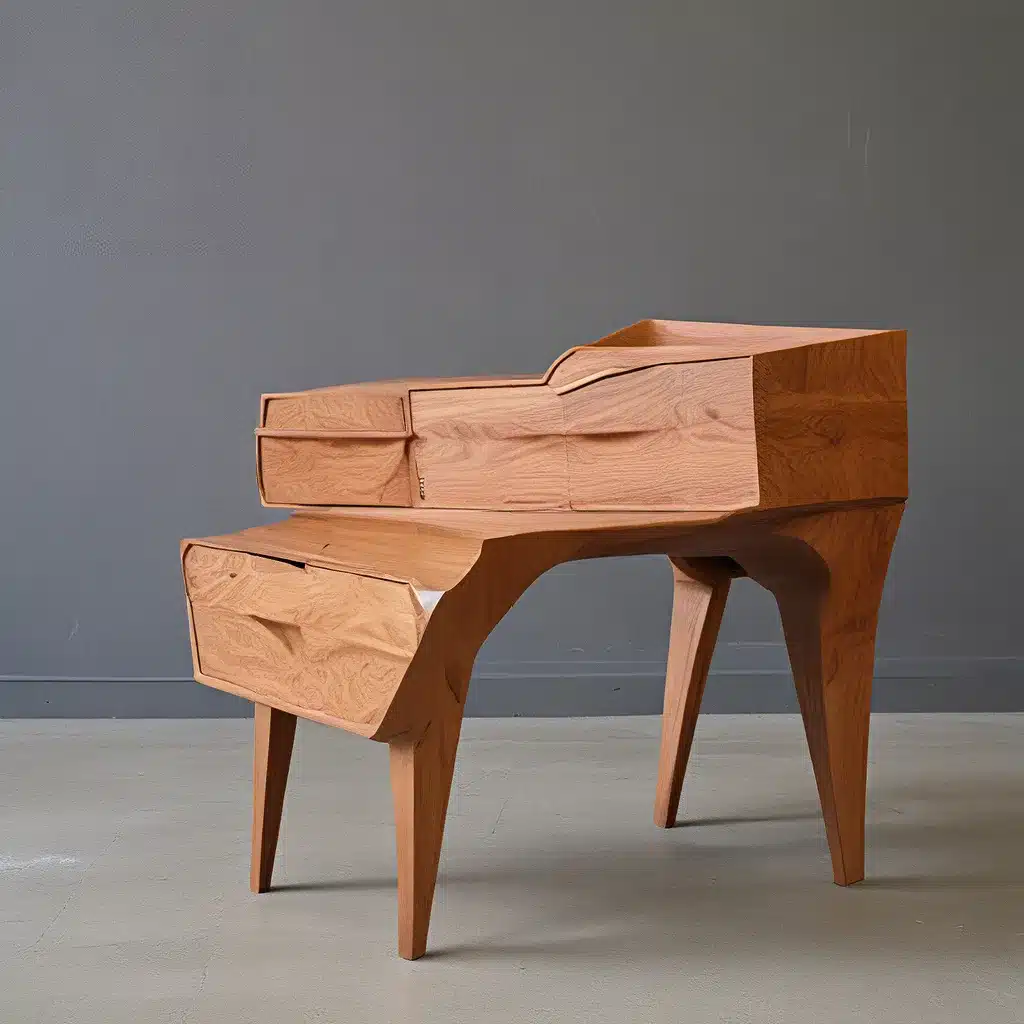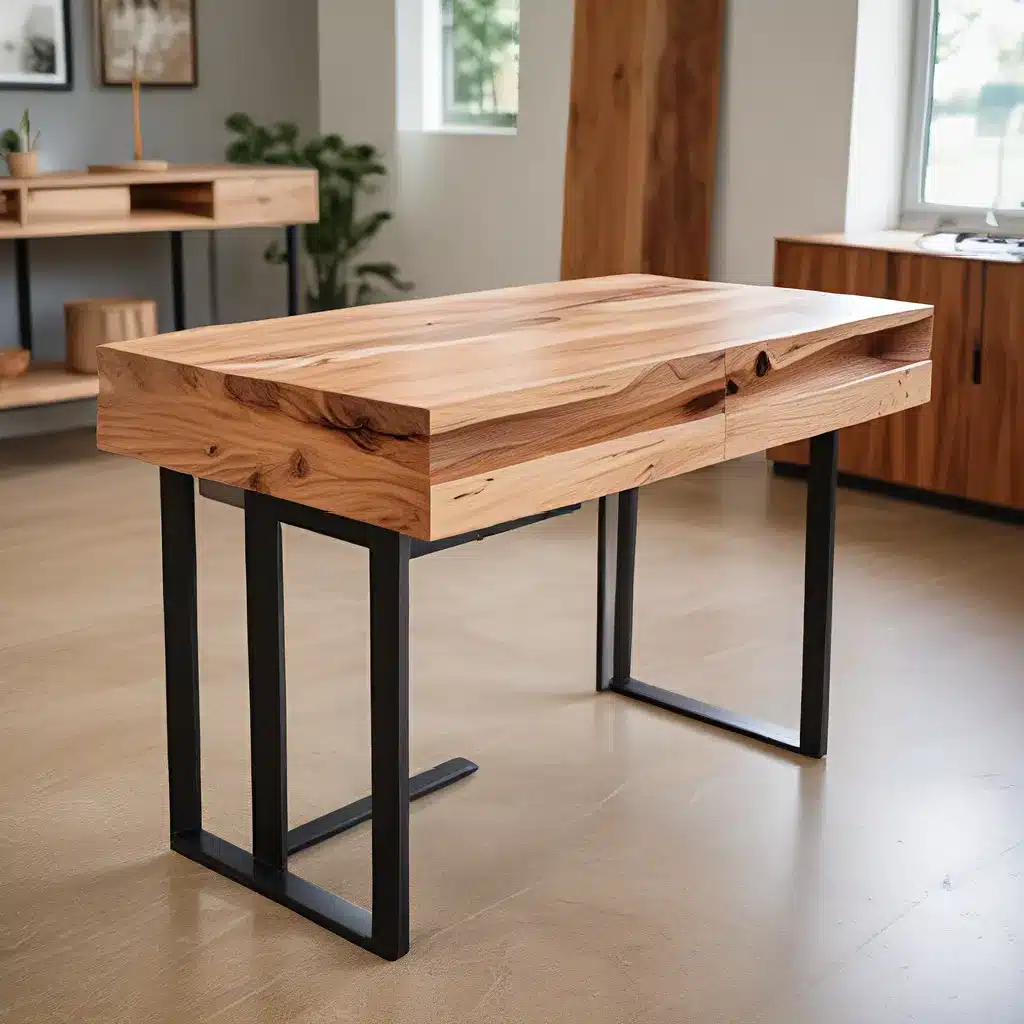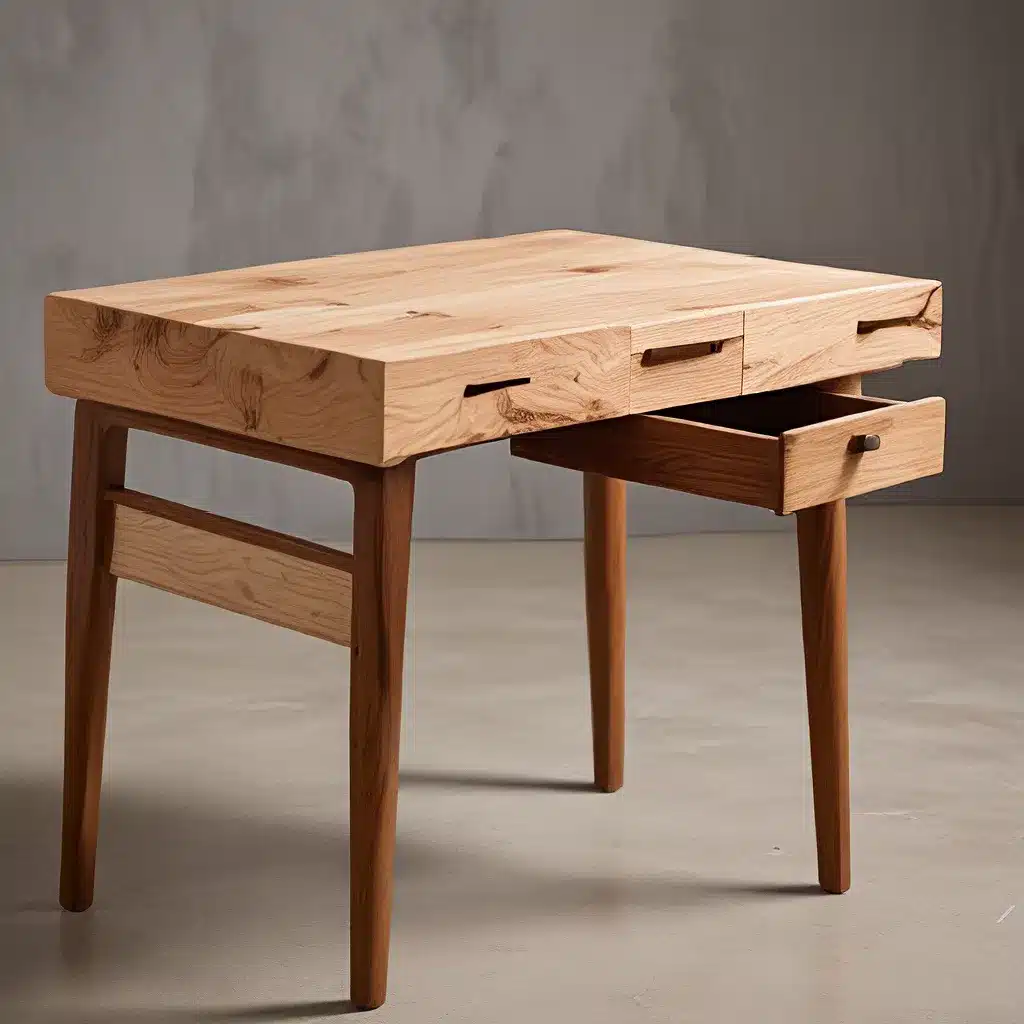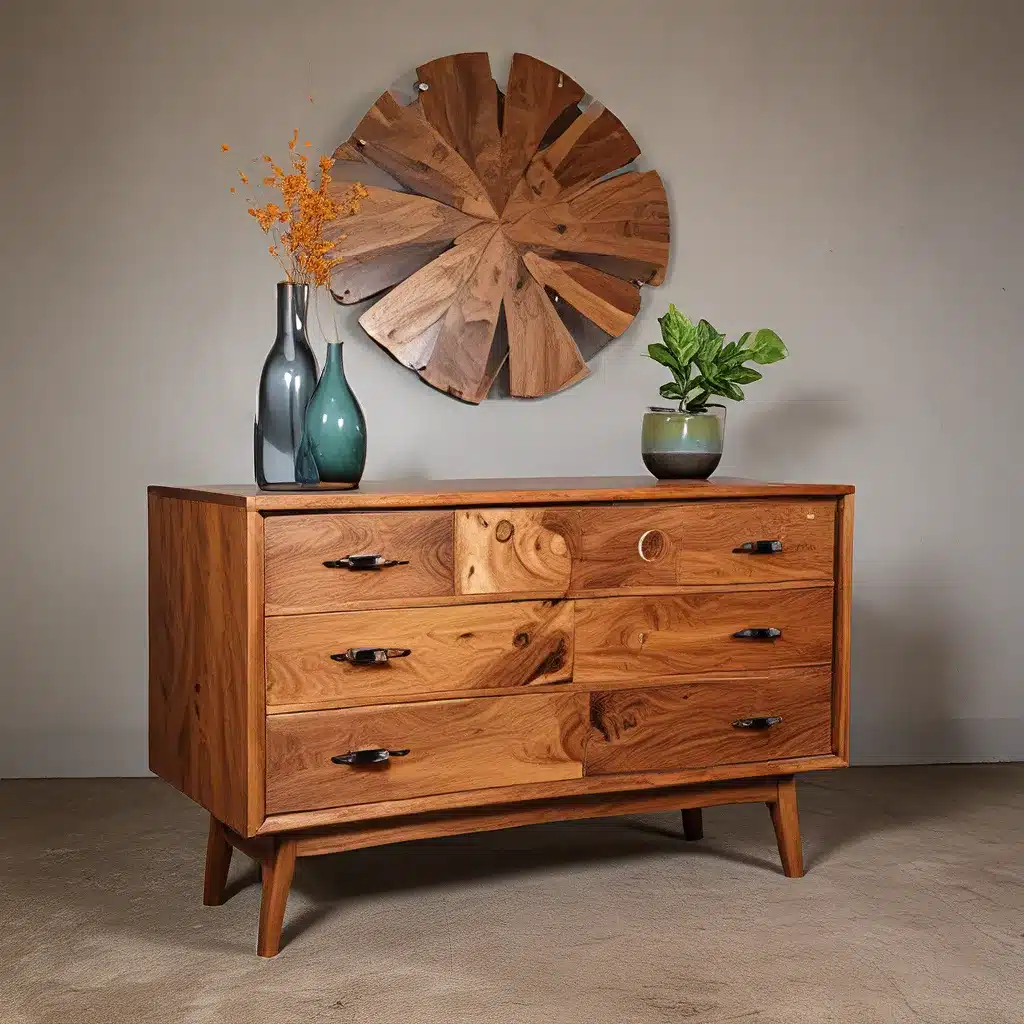
Embracing the Beauty of Imperfection
Imagine stepping into a cozy living room, your senses immediately captivated by the warm glow of a wooden coffee table. As you run your fingers across its surface, you can feel the subtle undulations, the knots and grains that tell the story of the tree from which it was crafted. This is the essence of wabi-sabi – the Japanese philosophy that celebrates the beauty in imperfection.
In a world where perfection is often the ultimate goal, I find myself drawn to the raw, the unique, and the authentically imperfect. And when it comes to artisanal furniture, I’ve discovered a deep appreciation for the captivating flaws that make each piece one-of-a-kind.
You see, I used to be like many others – I’d scour the furniture aisles in search of the most uniform, flawless wood. But something shifted within me, and now I find myself gravitating towards the pieces that embrace their natural imperfections. It’s as if the wood itself is whispering its tale, inviting me to slow down and truly appreciate the beauty in its journey.
Uncovering the Charm of Imperfection
Take, for instance, the unfinished furniture I recently discovered. As I ran my hand over the weathered grain, I couldn’t help but notice the knots, the twists, and the subtle variations in color. Instead of seeing these as flaws, I saw them as a testament to the tree’s resilience, its struggle against the elements, and the rich history it had to share.
It’s a perspective that Cambium Carbon has championed, encouraging us to embrace the unique character of ‘defective’ trees. They believe that these natural variations are not flaws, but rather attributes that add depth and personality to the wood.
“Each blemish on a piece of wood holds a history and a uniqueness that cannot be replicated,” the Cambium team explains. “A knot may mark where a branch once sprouted, a twist may indicate the tree’s struggle against natural elements, and variations in grain color can reflect the richness of the soil it grew in.”
It’s a shift in perspective that I’ve come to deeply appreciate. Instead of discarding the wood with so-called ‘imperfections,’ we can celebrate its authenticity and incorporate it into beautiful, functional pieces that tell a story.
Embracing Wabi-Sabi in Wood Design
As I delve deeper into the world of artisanal furniture, I’ve discovered the Japanese design philosophy of wabi-sabi – a concept that perfectly encapsulates my newfound love for the imperfect.
Wabi-sabi is all about embracing the beauty of imperfection, the ephemeral nature of life, and the simple elegance of natural materials. It’s a design approach that invites us to slow down, appreciate the present moment, and find solace in the imperfect.
When it comes to wood flooring, wabi-sabi design is particularly captivating. Imagine stepping onto a weathered wooden floor, its surface marked by the passage of time and the imprints of everyday life. Instead of seeing flaws, we’re invited to embrace the unique character and charm that these imperfections bring.
“Have you ever felt a deep sense of tranquility when stepping onto a weathered wooden floor worn by the passage of time and marked with the imprints of life’s everyday moments?” the article asks. “As if the imperfections and unique character of the wood floor were speaking to your soul, inviting you to embrace the beauty of rustic charm and natural simplicity.”
This is the essence of wabi-sabi – finding joy in the imperfect, the impermanent, and the authentically natural. It’s a philosophy that encourages us to let go of the pursuit of perfection and instead, embrace the beauty that lies in the flaws.
Celebrating the Artistry of Imperfection
As I continue to explore the world of artisanal furniture, I’ve been captivated by the way skilled craftsmen and women embrace the imperfections of wood. Rather than seeing them as flaws to be hidden or corrected, they celebrate these unique features as the very essence of the material.
Take, for example, the hand-carved wooden bowl I recently acquired. At first glance, you might notice the slight asymmetry, the uneven edges, and the slight variations in color and texture. But to me, these imperfections are what make the piece so captivating. They’re a testament to the care and attention of the artisan who created it, and a reminder that true beauty lies in the embrace of the unique and the authentic.
“The true beauty of handmade items lies in their imperfections,” explains the article. “Each piece carries the mark of the artisan’s hand, telling a story of care and dedication. In wabi-sabi design, the passage of time and the natural wear and tear of materials are celebrated, adding to the charm and authenticity of the space.”
It’s a philosophy that extends beyond just furniture and into the very essence of our homes. By incorporating natural materials like weathered wood and embracing the imperfections that come with them, we can create spaces that exude a sense of warmth, tranquility, and authenticity.
Embracing the Imperfect Future
As I look to the future of my own home design, I find myself drawn more and more to the artisanal and the imperfect. Gone are the days of scouring for flawless, mass-produced pieces. Instead, I seek out the unique, the handcrafted, and the beautifully flawed.
In a world that often values conformity and perfection, I believe it’s time to embrace the authentic and the imperfect. By celebrating the natural variations and unique character of artisanal real wood, we can create spaces that are not just visually stunning, but also imbued with a sense of warmth, history, and connection to the natural world.
So, as you embark on your own journey of home design, I encourage you to look beyond the perfect and embrace the imperfect. Allow yourself to be captivated by the knots, the twists, and the subtle variations that make each piece of artisanal furniture a true work of art. For in the embrace of imperfection, you’ll find a world of beauty, authenticity, and timeless charm.








